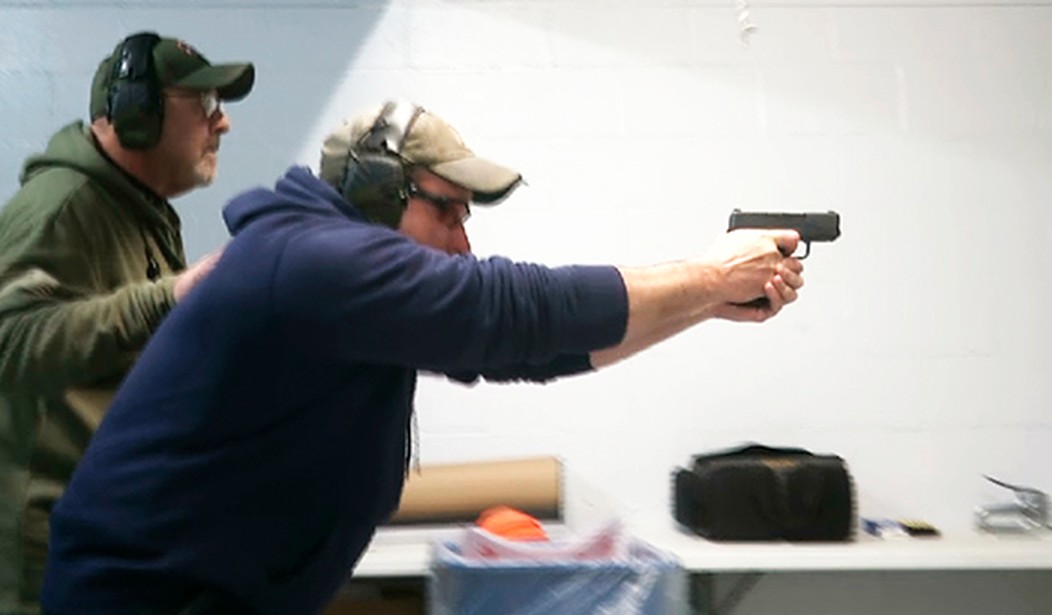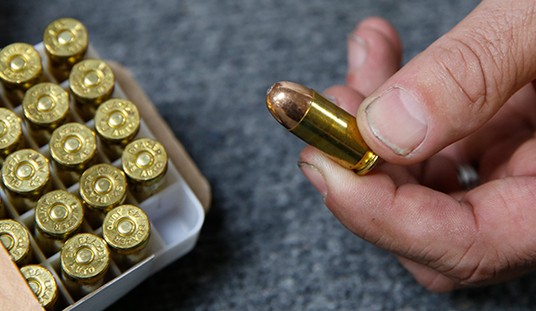Ohio lawmakers have approved two separate Constitutional Carry bills in recent weeks, but neither have received the final votes needed to be sent to Gov. Mike DeWine for his signature, and while the bills are still sitting in the state capitol building opponents have been trying to muster up enough last-minute opposition to derail the legislation from becoming law.
There’ve been no shortage of op-eds and opinion pieces proclaiming that Ohio will become the “Wild, Wild West” or descend into a dystopian hellscape if the state no longer requires a government-issued permission slip before legal gun owners can lawfully carry, but one of the weakest arguments I’ve run across came from retired attorney former law professor Doug Rogers, who seems to believe that the state’s current laws are actually preventing criminals from illegally carrying a gun.
The Fraternal Order of Police of Ohio testified that Senate Bill 215 will “create a threat to officer safety.”
Hamilton County Sheriff Charmaine McGuffey testified: “Allowing virtually anyone in Ohio to conceal weapons on their person without training or background checks will make Ohio less safe.”
The Ohio Patrolmen’s Benevolent Association testified, “There must be a minimum training requirement for someone … with the awesome right of carrying a weapon that can deprive another person of their life.”
Ohio already allows for the open carrying of firearms without a license or training, and there’s no minimum training requirement to own a firearm either. How is carrying a firearm concealed so much different from openly carrying one? While I strongly encourage every gun owner to continually train with their gun, mandating an official training course before one can exercise a constitutionally-protected right is an undue burden on the right itself.
Rogers goes on to complain about several other aspects of the bill, including language that clarifies when someone who’s legally armed needs to inform a law enforcement officer of that fact.
Finally, the senate bill would further endanger police by: (1) eliminating the current responsibility of a civilian carrying a concealed handgun stopped by the police to promptly notify police that he is carrying a concealed firearm; and (2) switching the duty to the police officer to ask if that civilian is carrying a concealed weapon.
The Ohio Association of Chiefs of Police said, “To remove the duty to notify is setting us all up for confrontation and potentially tragic failure.”
I’d argue that the current ambiguous language is even more likely to lead to confrontation and potential tragedy. With the clear standard outlined in the permitless carry legislation, an officer can simply ask an individual if they’re carrying a firearm when they initiate the stop. I think that’s a much better solution than leaving it up to the gun owner to “promptly” (a term which isn’t defined in state law) notify police themselves.
There are 21 states with permitless carry laws on the books, and police departments in every one of them have figured out how to continue to do their job and arrest violent criminals after the law took effect. No state has ever gone back and repealed its Constitutional Carry statute, which also says quite a bit about how the law actually works in practice.
Rogers wraps up his lame argument by calling on the legislature to reject Constitutional carry “because it is anti-police and anti-public safety,” which is an outright lie. There’s nothing anti-police about a pro-civil rights piece of legislation. There’s nothing anti-public safety about ensuring that legal gun owners can publicly protect themselves. Frankly, there’s no good reason why Ohio shouldn’t join the 21 other states that have already adopted Constitutional Carry. The bills are there and now’s the time for lawmakers in Columbus to move this legislation across the finish line and send it to the governor for his signature.









Join the conversation as a VIP Member